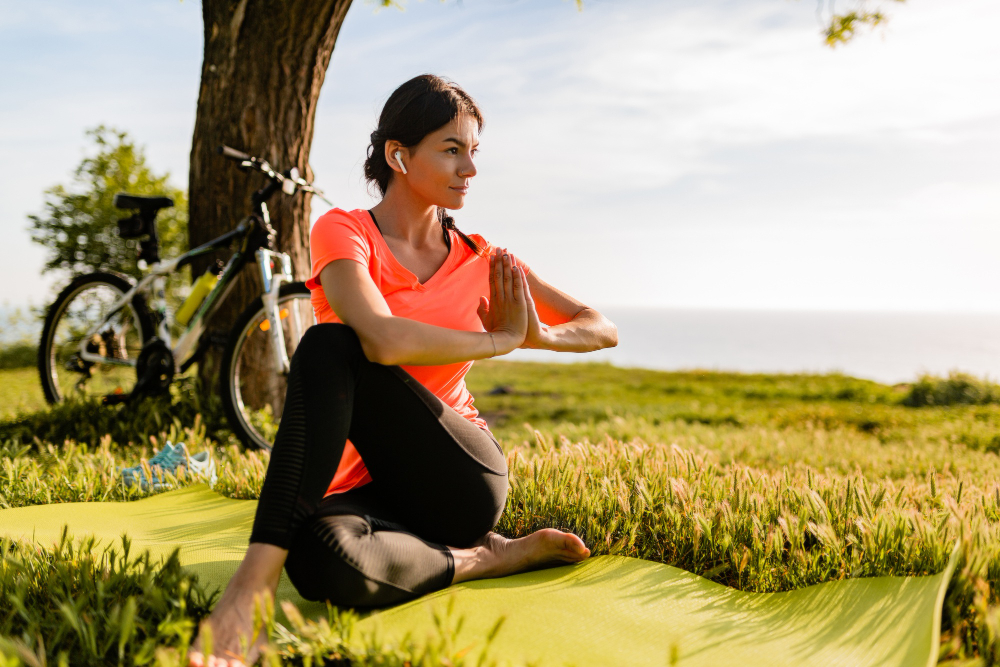In today’s fast-paced world, finding balance between physical health, mental wellness, and overall vitality can feel like a struggle. But achieving optimal health doesn’t need to be overwhelming; it’s about integrating simple, sustainable habits into your daily life that build resilience, increase energy, and enhance well-being. This article explores the ten essential health and wellness tips for a vital lifestyle, providing practical advice for nourishing your body, mind, and spirit.
The Importance of Health and Wellness
Health and wellness are central to living a fulfilling life. When we prioritize our well-being, we not only improve our physical and mental health, but we also enhance our relationships, productivity, and overall quality of life. Many factors contribute to health and wellness, including diet, exercise, mental health practices, and self-care. By adopting a holistic approach, you can create a balanced lifestyle that supports your vitality at every stage of life.
Nutrition as the Foundation of Vitality
Good nutrition is essential for energy, mental clarity, and overall health. While processed foods may be convenient, they often lack the nutrients needed to fuel the body effectively. A diet rich in whole foods—such as fruits, vegetables, lean proteins, whole grains, and healthy fats—can make a profound difference in how you feel each day. Focus on balanced meals that stabilize blood sugar and promote sustained energy.
- Incorporate Superfoods: Foods like berries, leafy greens, nuts, seeds, and fatty fish are packed with vitamins, minerals, and antioxidants that support cellular health.
- Stay Hydrated: Water is vital for digestion, circulation, and temperature regulation. Aim to drink at least eight glasses of water daily.
- Limit Processed Foods: These foods often contain high levels of sugar, salt, and unhealthy fats, contributing to inflammation and low energy.
The Role of Physical Activity in Wellness
Regular exercise boosts energy, reduces stress, and improves mood. Exercise doesn’t have to mean intense gym sessions; find activities that you enjoy and can integrate easily into your routine.
- Strength Training and Flexibility: Muscle strength and flexibility contribute to long-term mobility and balance. Incorporate resistance exercises and stretching into your workouts.
- Mindful Movement: Practices like yoga and tai chi combine movement with mindfulness, offering benefits for both body and mind.
- Daily Activity: Even small movements throughout the day—taking the stairs, standing up regularly, and walking more—contribute to increased vitality.
The Power of Sleep for Health and Wellness
Sleep is essential for physical recovery, memory consolidation, and mental clarity. Aim for seven to eight hours of sleep per night and create a relaxing bedtime routine to improve sleep quality.
- Prioritize a Consistent Schedule: Going to bed and waking up at the same time each day helps regulate your internal clock.
- Reduce Screen Time Before Bed: Exposure to blue light from screens can disrupt the production of melatonin, the sleep hormone.
- Create a Sleep-Friendly Environment: A cool, dark, and quiet room can enhance the quality of your sleep.
Managing Stress for a Healthier Life
Chronic stress affects every aspect of health, contributing to mental strain, digestive issues, and even heart disease. Managing stress effectively is crucial for maintaining both physical and mental wellness.
- Practice Mindfulness Meditation: Meditation promotes relaxation and mental clarity, helping you respond to stress with calmness.
- Spend Time in Nature: Time outdoors can reduce stress and improve mood. Try a nature walk, hiking, or even gardening.
- Set Boundaries: Learn to say no to unnecessary commitments, focusing on what matters most to you.
The Benefits of Positive Social Connections
Strong social bonds have a powerful impact on health and longevity. Building supportive relationships boosts mood, improves mental health, and can even reduce physical pain.
- Connect Regularly with Loved Ones: Prioritize time with family and friends to create positive, supportive experiences.
- Participate in Community Activities: Volunteering, joining clubs, or attending local events are great ways to meet like-minded individuals.
- Limit Toxic Relationships: Relationships that bring negativity or stress can harm your health. Focus on positive, uplifting interactions.
Mental Health Practices for Inner Peace
Mental health is as important as physical health for overall wellness. Practices that encourage self-awareness, resilience, and emotional well-being can help you thrive.
- Journaling: Writing down your thoughts can improve clarity and reduce mental clutter.
- Gratitude Practice: Recognizing what you’re thankful for shifts your focus to positivity, promoting a sense of contentment.
- Seek Support When Needed: Don’t hesitate to reach out to mental health professionals when you need guidance or support.
Balancing Work and Life for Greater Vitality
A healthy work-life balance reduces burnout and enhances well-being. Setting boundaries between work and personal life can protect your energy and mental health.
- Set Clear Work Hours: Create boundaries to prevent work from overtaking personal time.
- Take Regular Breaks: Short breaks can improve focus and productivity, making you more effective in your work.
- Pursue Hobbies and Interests: Engage in activities outside of work that bring you joy and relaxation.
Developing a Self-Care Routine
Self-care is more than pampering; it’s about taking time to recharge and nurture your mind and body. By regularly practicing self-care, you can avoid burnout and improve mental resilience.
- Identify Your Needs: Everyone’s self-care routine is unique. Determine what activities help you relax and recharge.
- Include a Mix of Activities: Activities like reading, taking baths, and meditating can all be part of a holistic self-care routine.
- Schedule Self-Care Time: Set aside regular time for self-care, treating it as essential rather than optional.
The Role of Mindfulness in Health and Vitality
Mindfulness enhances awareness and emotional regulation, promoting a deeper connection with your body and mind. Practicing mindfulness regularly can increase happiness, reduce stress, and improve overall health.
- Daily Mindfulness Meditation: Set aside a few minutes each day to focus on your breathing and center your mind.
- Mindful Eating: Paying attention to what you eat, savoring each bite, and being present during meals improves digestion and satisfaction.
- Practice Mindfulness in Everyday Tasks: Bringing mindfulness to daily activities, like walking or washing dishes, can enhance mental clarity.
Harnessing the Power of Nature for Wellness
Nature has a healing effect on the mind and body. Spending time outdoors can reduce stress, boost mood, and improve overall health.
- Regular Outdoor Exercise: Walking, jogging, or cycling outside combines physical activity with the therapeutic benefits of nature.
- Practice Forest Bathing: Inspired by the Japanese practice of “shinrin-yoku,” forest bathing involves immersing yourself in a natural environment for relaxation.
- Create a Green Space at Home: Indoor plants can bring a touch of nature indoors, improving air quality and providing a calming environment.
FAQs
What are some quick daily wellness tips?
Incorporate small habits like drinking water first thing in the morning, spending a few minutes outside, and practicing deep breathing for a quick daily wellness boost.
How much sleep is essential for wellness?
Aim for seven to eight hours per night to support physical recovery, mental health, and optimal cognitive function.
How does diet impact mental health?
A balanced diet with whole foods, low sugar, and plenty of vitamins can improve mood, energy, and overall mental clarity.
What is the best type of exercise for vitality?
A mix of cardiovascular, strength training, and flexibility exercises ensures a well-rounded approach to fitness and vitality.
What is mindfulness meditation?
Mindfulness meditation involves focusing on the present moment, typically through breathing exercises, to increase awareness and reduce stress.
How can I improve my work-life balance?
Set boundaries for work hours, take regular breaks, and pursue hobbies outside of work to create a balanced lifestyle.
Integrating these wellness tips into your daily life can enhance both physical and mental well-being, fostering a more balanced and joyful lifestyle. By prioritizing nutrition, exercise, mental health, and social connections, you’ll be well on your way to living a vital and vibrant life.



